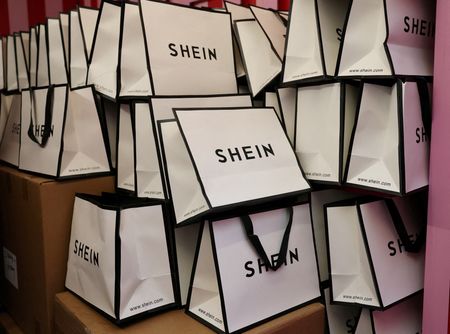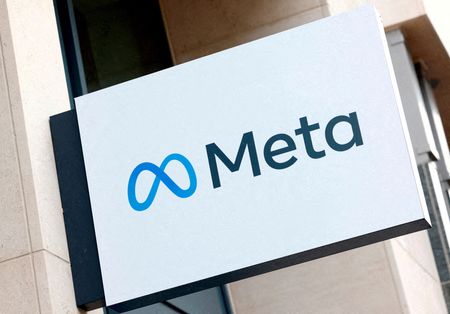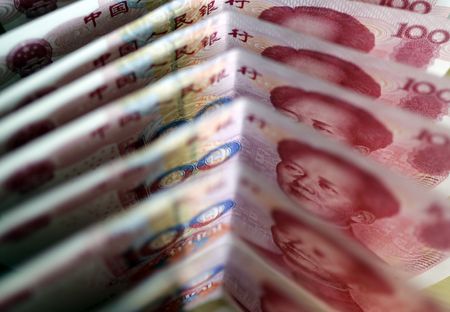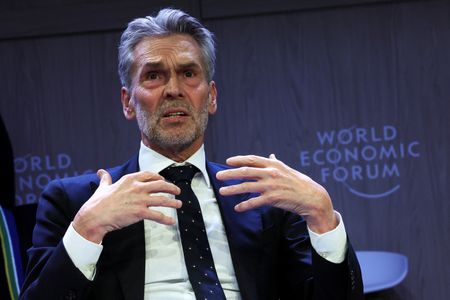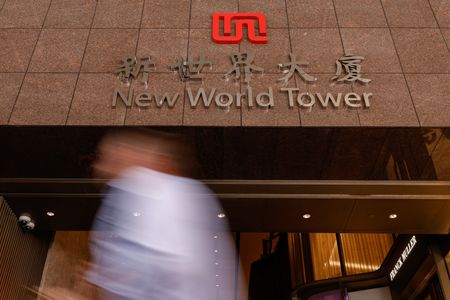By Helen Reid and James Davey
LONDON (Reuters) -Online fast-fashion retailer Shein requires its contract manufacturers to only source cotton from approved regions, which do not include China, for products it sells in the United States, its biggest market, the company said on Friday.
Approved cotton sources include Australia, Brazil, India, the United States and, “in limited cases”, certain countries in Europe, Middle East and Africa, and Southeast Asia, Shein’s general counsel for Europe, Middle East and Africa Yinan Zhu said in written evidence to a British parliamentary committee chair.
Zhu said that requirement is for Shein’s compliance with the Uyghur Forced Labor Prevention Act, legislation intended to ban products made by forced labour in China from entering the United States.
Shein has faced allegations that its products contain cotton from China’s Xinjiang province, where the U.S. and NGOs have accused the Chinese government of forced labour and human rights abuses targeting Uyghur people. Beijing denies any abuses.
Shein, which sells in 150 markets worldwide, said its supplier code of conduct prohibiting forced labour applies regardless of the country its products are sold in.
But it did not specify whether its restrictions on cotton sources applied to products sold in other markets, such as the UK, where it is planning a London initial public offering.
“We do not prohibit the use of Chinese cotton in our products specifically where such use would not contravene the laws and regulations of the jurisdictions in which we operate,” Zhu wrote.
That did not satisfy Labour lawmaker Liam Byrne, the chair of the cross party Business and Trade committee which is conducting an inquiry into the new government’s Employment Rights Bill.
He said he has written back to Shein for clarity on whether Xinjiang cotton is used in goods sold in the UK.
“I just want to know the truth and I think British consumers want to know the truth and if that (IPO) moment ever comes I can tell you British investors are going to want to know that truth,” he told Reuters in an interview.
He said the committee reserved the right to recall a Shein representative for a further oral hearing.
Shein, like many other apparel retailers, uses isotopic testing firm Oritain to verify the origin of cotton in its products and check for cotton from unapproved sources.
Testing during 2024 found 1.3% of Shein’s cotton was from unapproved regions, Zhu wrote, without specifying which regions.
Zhu represented Shein at a parliamentary hearing on Jan. 7 but declined to answer lawmakers’ repeated questions about Shein’s use of cotton from China, prompting criticism from Byrne who then raised concerns with the Financial Conduct Authority, which is in charge of approving Shein’s IPO, and the London Stock Exchange.
In a reply to Byrne published on Friday, the CEO of the London Stock Exchange said she cannot comment on specific companies, but said the scrutiny on companies wanting to access UK public markets brings a higher level of discipline and transparency than if those companies remained privately owned.
In a separate letter, FCA Chief Executive Nikhil Rathi said the regulator aims to ensure any IPO prospectus makes all required disclosures for potential investors to understand the legal risks, and its review process also involves background checks on the company, its senior managers and board members. Rathi did not specifically mention Shein.
Byrne was unhappy with both responses and has written back, seeking more information.
“What we want to know is whether you ask firms to prove that there are safeguards against the use of forced labour and we want to know whether you ask firms whether they’re using goods or products from Xinjiang in their supply chains,” he said.
Byrne wants the government’s employment legislation to incorporate greater safeguards against forced labour.
This would ensure that “if and when the day comes that Shein seeks to float on the LSE we have the right safeguards around forced labour in place on the statute book,” he said.
(Reporting by Helen Reid and James Davey; editing by Jason Neely, Louise Heavens and David Evans)

